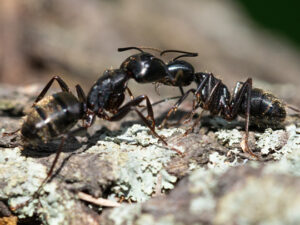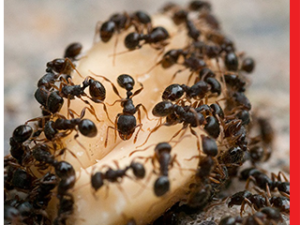
If you know the pain of ant infestation in your home, you may be aware of the frustration of getting rid of them, which is way too difficult and often needs the intervention of pest control professionals. While some ant intends no harm and causes no damage, there are a few ant species whose entry into your home means trouble, such as a pharaoh ant infestation.
A what?
If the name sounds alien to you, then keep scrolling to know more about the dangerous ant species, how to identify them, and tips to keep them away from your house.
So, without much ado, let’s dive in.
What are Pharoah Ants?
Pharaoh ants are named so because, during the time of Pharaohs, they were mistaken as plagues of Egypt. These ant species are prevalent throughout the United States and love to sneak into people’s homes, and once they get in, it is extremely difficult to get them out. Moreover, Pharoah ants can feast on a diverse variety of foods, such as fats, proteins, and sweets. They also feed on insects, both dead and alive.
Identification
Pharaoh ants are tiny, about 1.5 – 2.0 mm long, and are pale-colored, usually ranging from light yellow to red, with darker to black markings on the abdomen. Pharaoh ants look very similar to thief ants. That said, pharaoh ants have a monomorphic shape with three segments in the antennal club.
Where are they found?
Pharaoh Ants are tiny, which makes it easier for them to travel to different places easily. Therefore, they can be found in varied places including hard-to-reach places. Pharaoh ants can nest outdoors, either under debris or in shaded areas.
Once they sneak in, pharaoh ants seek shelter in warm and hidden places such as wall voids, in-wall outlets, under carpets, and other appliances for protection. The nests of pharaoh ants are well hidden and are found with large colonies. Some other places where pharaoh ants can be found include:
- Kitchen and bathroom
- Window sills and baseboards
- Plumbing or electrical wires
- Outdoors in lawns and gardens.
- Areas with high moisture, such as evaporative cooling units and sprinkler systems.
- Near water sources, such as toilets, drains, countertops, and sinks.
- Clothes, papers, sheets, behind baseboards, inside curtain rods, walls, and cabinet voids.
How Serious Are Pharaoh Ants?
Pharaoh ants are considered as one of the most difficult pests to control indoors because of their large colony size. Moreover, when people opt for DIY methods, any incorrect use of pesticides prompts the pharaoh ants to bud or split off from existing colonies to begin new colonies in new hidden locations, which means that you may have to deal with several colonies instead of one big colony.
Moreover, they are more than just a nuisance as they carry and transmit diseases such as salmonella and Streptococcus pyogenes. Pharaoh ant infestations in hospitals can contaminate patients’ wounds. Inside your premises, they can contaminate food sources and cause dysentery.
- Pharaoh Ant Prevention
- Inspect your home and seal all possible entry points, including small openings and cracks.
- Keep your kitchen counters and floors clean.
- Store your food in airtight containers and dispose of the garbage away from your home, in sealed receptacles.
- Eliminate all sources of water pooling to prevent moisture build-up.
- Trim all tree branches and shrubbery.
- Store and stack firewood at least 20 feet away from the house.
- Consider hiring a pest professional for a year-round pest prevention plan.
Wrapping Up
If you spot and identify a pharaoh ant infestation in and around your home, do not try any DIY remedies, as it can make the situation worse as the ants will split to form several new colonies once they sense danger. Moreover, controlling a pharaoh ant infestation of your own may take several months due to their huge network of nests. The best route you should take to get rid of a pharaoh ant infestation is to call pest control professionals, who are trained to remove them from the source and keep your home ant-free.











